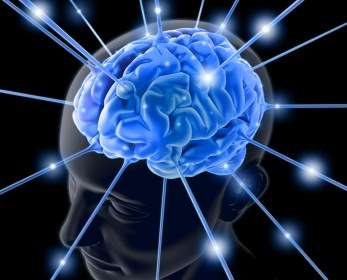An Australian-based researcher will join a five-year Japan-led project that is trying to work out whether robots and computers are capable of consciousness.
The research team will include Associate Professor Nao Tsuchiya from the Monash University School of Psychological Sciences, the University said in a statement this week.
"Imagine a world where “thinking” robots were able to care for the elderly and people with disabilities," Monash said.
"This concept may seem futuristic, but exciting new research into consciousness could pave the way for the creation of intuitive artificial intelligence."
But can computers really be made to be conscious, and would we even know if we managed to create one?
The Japanese-led team of researchers hopes to measure consciousness using an often-cited mathematical model called integrated information theory (IIT), created by the University of Wisconsin’s Dr Giulio Tononi.
IIT is characterised as “a way of assessing consciousness in a machine - a Turing Test for consciousness”.
“[IIT says that] if you were to build a computer that has the same circuitry as the brain, this computer would also have consciousness associated with it. It would feel like something to be this computer,” Christof Koch, chief scientific officer of the Allen Institute for Brain Science in Seattle, told MIT’s Technology Review last year.
Koch, who authored three books on consciousness, has spent the past 25 years researching the subject, and is widely considered an expert in the field.
Both he and Dr Tononi have tried to tackle the question of conscious computers over the past decade.
“Our work has given us a unique perspective on what is arguably the most momentous issue in all of technology: whether consciousness will ever be artificially created,” Koch and Dr Tononi wrote in IEEE Spectrum in 2008.
“We think it will—eventually. [But] the machine would have to do as well as any of us to be considered as conscious as we humans are—so that a human judge could not tell the difference.
“No machine or program comes close to pulling off such a feat today.”
Six years later and asked the same question on whether he thought researchers would ever build a conscious computer, Koch replied: “I’m not sure why we would.”
Believe the machines
Stuart Russell, founder of the Center for Intelligent Systems at the University of California, told Tech Insider in August that the biggest obstacle for researchers in this space is that “we have absolutely no idea how the brain produces consciousness.”
“It's not even clear that if we did accidentally produce a sentient machine, we would even know it,” Russell said.
“I used to say that if you gave me a trillion dollars to build a sentient or conscious machine I would give it back. I could not honestly say I knew how it works.
“When I read philosophy or neuroscience papers about consciousness, I don't get the sense we're any closer to understanding it than we were 50 years ago.”
That sentiment is supported by Koch.
“I could ask, ‘Are you conscious?’ and the machine could say, ‘Yes, I am fully conscious. And why are you claiming I am not? I am insulted.’ But I couldn’t really know,” Koch said.
“I’d have to say, ‘Sorry, I have to take you apart and understand how you are made and how you actually generate these different physical states.’”
It’s been done
This is not the first time that researchers have tried to use IIT to advance the cause of conscious computing.
Last year, an Irish team published a paper suggesting it wasn’t possible for machines to replace human consciousness. That team also used IIT as the basis for its research.









